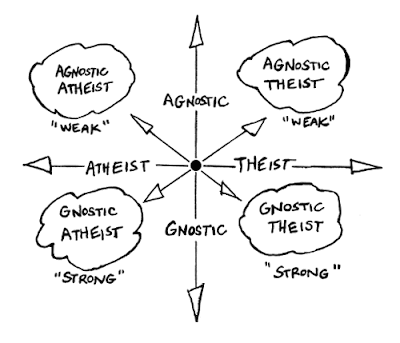Everybody is a Critic
My brother asked me: "Why must you always criticize others?"
It's a fair question.
After have giving it some thought, my answer to this question is this: Because criticism is the tool which helps us point out each others flaws. If we weren't allowed to criticize, we wouldn't know what to improve.
Religious people often get offended when their religion is criticized. It's understandable. I mean, criticism is pointing out the flaws, not complimenting the things that work. People don't like to hear how horrible their religious beliefs are. After all, the invest a lot of time and energy forming--or conforming to--these beliefs. To hear that they are somehow inadequate, dysfunctional, or imperfect--when they were sold the belief on the promise of perfection--leaves them feeling the bitter aftertaste of regret in their mouths.
Criticism also has the ability to sour relationships. When I criticize religion in general, most people are fine. General criticisms are far reaching, but too soft to sting. When I narrow my criticism down to something more specific, such as Christianity, they often throw up all kinds of barriers. Even if the criticism is more or less the same of religion in general. It's the strange double standard of--it's okay to criticize everybody else--because they're obviously wrong, but don't you dare criticize me.
I personally welcome criticism. I have used much of the criticism I receive on this blog, from those who comment or feel so compelled to email me personally, and have looked at it. Much of it is just hot-headed folks incapable of taking criticism well lashing back, but sometimes there is an insight, or a point raised, which I hadn't seen or considered. When this happens, I often am given food for thought, and I do frequently re-think my positions to a wide variety of subjects. My personal beliefs are no exception.
At the end of the day, that's what it comes done to, whether or not you are willing to question your own beliefs. People who refuse to question their beliefs, or have them questioned by others, are the ones who get the most defensive--the ones who are prone to outrage over the mere idea of being criticized.
Admittedly, taking negative criticism is sometimes hard to do. I even struggle with bad reviews and angry comments that I receive. And believe you me, I have received my fair share of them.
It's important to take our criticisms in stride. With time, one can build the skill of learning to know which criticisms to ignore and which to pay attention to. We have to learn to separate the judgmental and derisive attacks from genuine criticism. Criticism is literally the analysis and judgement of the perceived merits and faults of someone or something. It's more than just simply being judgmental. Being judgmental is just finding fault with everyone and everything but for yourself. Being critical is taking the time to reserve judgement until all the pros and cons have been considered, and only then is comment on such things warranted.
A criticism often doesn't supply anything more than much needed contrast. In other words, it doesn't promise to solve all our the problems. But don't you see? That's why it is so important NOT to shy away from criticism. We need to flex our critical minds, we need to be critical of others, including ourselves, in order to isolate our faults and find ways of coping with them. I should add, however, that being critical does not mean being disrespectful. You can still point out someones faults and be respectful of them.
One of my beliefs which I have formulated over the years is this: Criticism is necessary if we are ever going to improve our ideas as well as ourselves. A world without criticism would merely be a world where no one asked the difficult questions.



Comments
Post a Comment